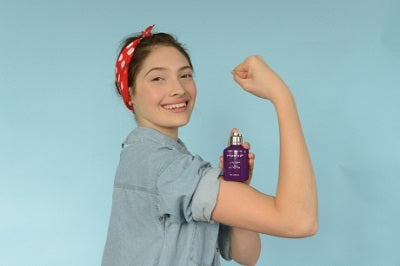Your Cart is Empty


We don’t need to tell you that beauty comes in many forms. For some, it is elevated through masterfully applied makeup, for others it lies in the glow of freshly cleansed skin. For all, it comes from within. Beauty, everywhere and for every woman, means something different. And when it comes to caring for our skin, this collage of beauty means that no two routines are the same. Skincare, in itself, can become an expression of individuality, of self-love, and of empowerment. This Women’s Equality Day, we explore the atlas of beauty.
Skincare isn’t all about improving the appearance of skin. For many women across the globe, it’s an act of self-care and self-love. Whether it’s the 5 minutes it takes to apply a purifying mud mask, or a day spent in a luxurious spa, those moments spent on caring for our skin are precious.
That’s why for millennia, women have indulged in special treatments. For aristocratic women in Ancient Rome, this might have been the application of a nightly mask called a tectorium, which would have been removed the next day with milk. Or an exfoliating scrub made of olive oil, and rinsed with water and scented oils like cedar, myrrh and saffron. Women in modern day West Africa, on the other hand, might value a sweet-smelling moisturizer made from shea butter – an all-natural fat extracted from the African shea tree. Whatever form they take, skin care routines give women across the globe the opportunity to take time out for themselves. It might be the simplest form of self-love, but in the non-stop lives of modern women, it can be the most radical.
A woman's skin is the map of her history, her identity, and her being. Laugh lines, wrinkles, sun spots and stretch marks – they're the tangible result of years spent laughing, working, creating and growing. And just as we can trace a woman's life through the appearance of her skin, we can learn almost as much about her from her skincare.
Researchers have found that all over the world, women adapt their skincare routines around their lifestyles, so that they can enjoy healthy, beautiful skin, no matter what the world throws at them. In rural parts of China, for example, women protect every inch of their skin. The result is that they develop wrinkles far later than average, despite working outside for much of the year. Just like these women, across the globe people use skincare to protect their health, preserve their femininity, and shape their identities, whatever their age.
For many cultures, beauty regimes are a link tying together generations of women. Some rituals are so ingrained in history that they become an expression of identity. The use of spices in skincare is a great example. For women in Indonesia, turmeric and other purifying spices and roots are turned into a natural body scrub packed with cleansing, anti-inflammatory and antioxidant properties. Meanwhile, for women in Myanmar, local ground sandalwood called thanaka acts as sunblock. Not only does this ancient recipe provide protection, but it’s seen as a traditional facial decoration.
For these women, and others across the globe, skincare recipes and rituals are passed from mother to daughter, helping to empower generations of women.
Our approach to skincare might be different across continents, countries, and even families, but its importance is universal. For women all over the world, the act of caring for our skin can act as a source of identity, individuality, protection, and self-care. From soaps and serums to moisturizers, makeup, and special diets, how we take care of our skin says a lot about us as women, and as individuals. This Women’s Equality Day, we’re celebrating the huge diversity of routines, products, ingredients and skin types. Put together, they create an incredible atlas of beauty.
Comments will be approved before showing up.
